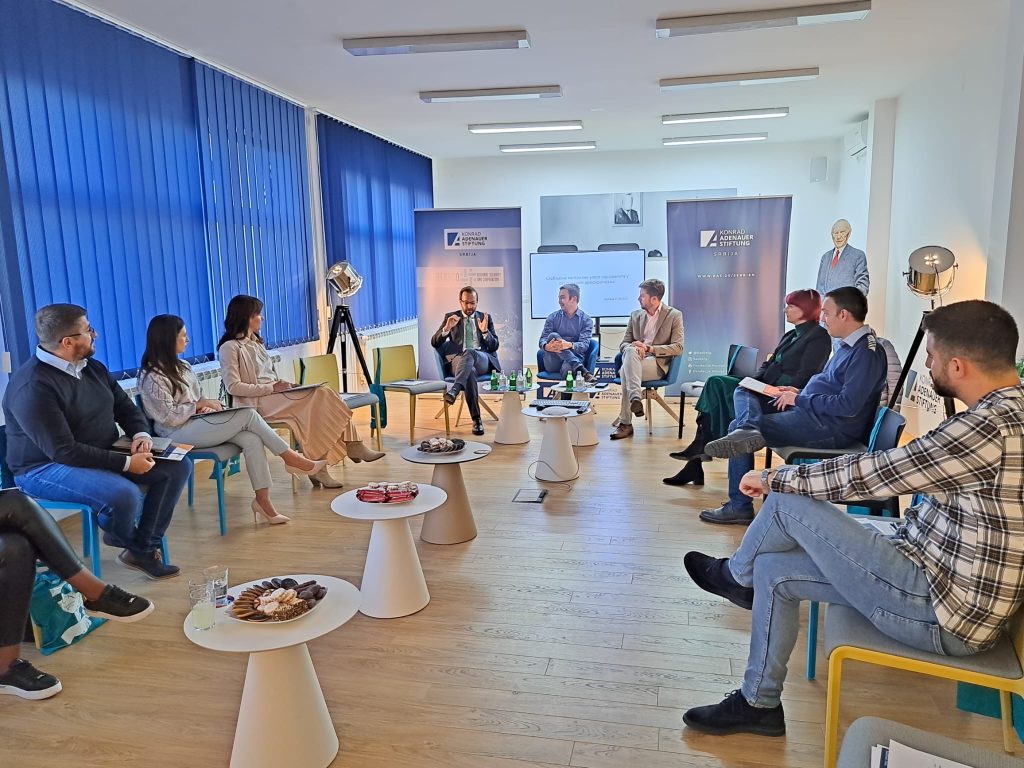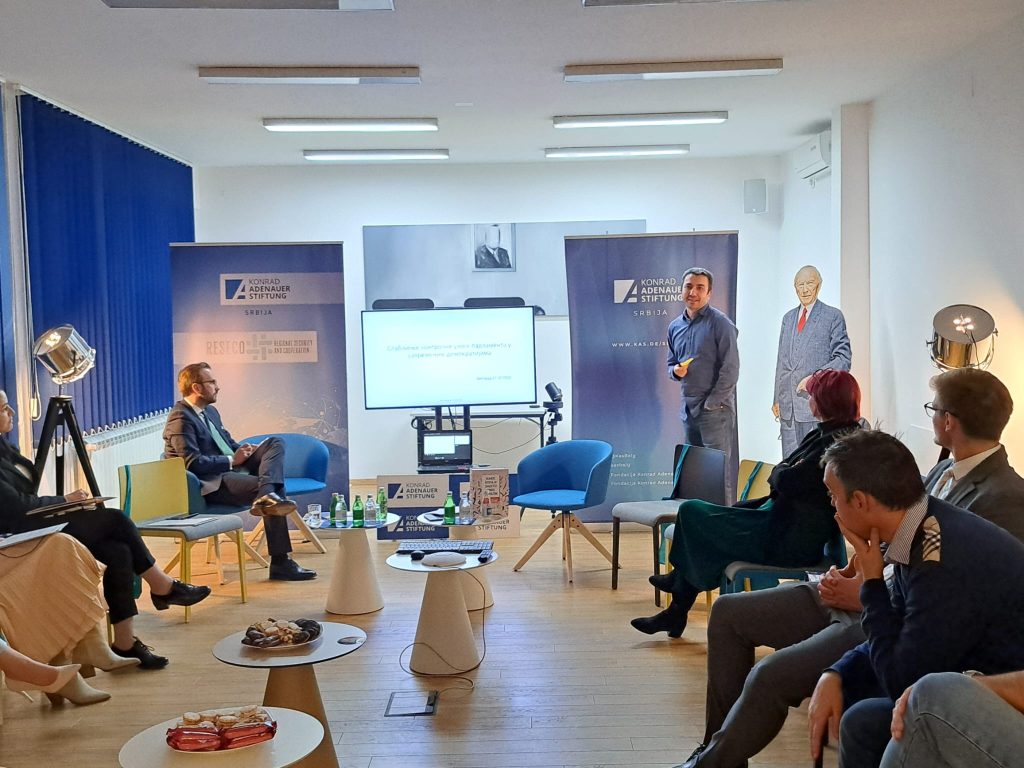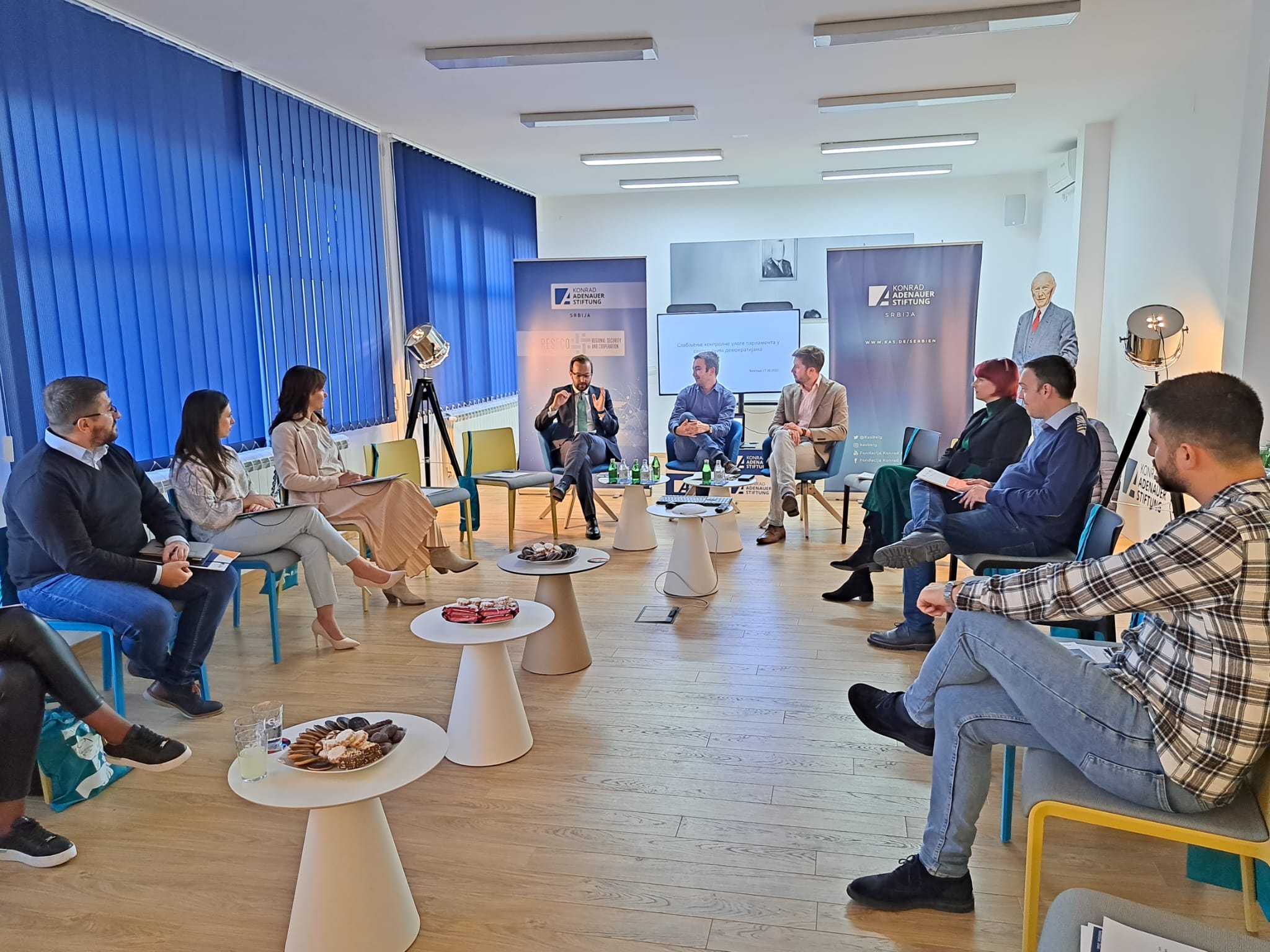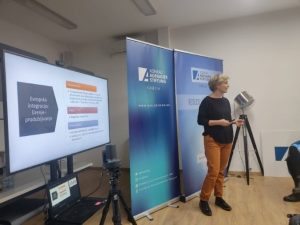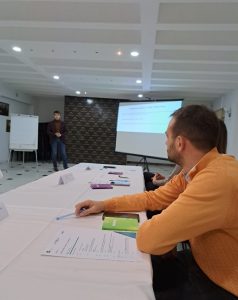An exceedingly lively discussion on the weakening of the controlling role of parliament in modern democracies was held on October 17, 2022, in the premises of the Konrad Adenauer Foundation. This also marked the beginning of the PolitiKAS debate project with Young MPs, organized by the Konrad Adenauer Foundation and think tank RESECO with the support of the Eduardo Frei Foundation.
Members of the Parliament, who are also members of the Serbian Progressive Party, had the opportunity to discuss the mentioned topic with assistant professor Dušan Vučićević from the Faculty of Political Sciences, University of Belgrade.
MPs were welcomed by Jakov Devčić, director of the Foundation for Serbia and Montenegro, who expressed his satisfaction with the heterogeneity of the MPs in the context of the places they come from, their previous professional engagements, but also the fact that they represent a group of young people who have been given the chance to represent the citizens of Serbia in an extremely important institution for democracy, such as the parliament.
RESECO’s Executive Director, Dr Stefan Surlić, in his introductory speech, greeted the attendees with the words of Branislav Nušić – “Fatherland is not a limited, circumscribed, embodied subject. Fatherland is faith, fatherland is thought, and thought is built…”. Dr. Surlić also added that in order to cultivate and develop thoughts, it is necessary to have open debates with others.
At the beginning of the debate, various questions were raised about the position and competences of the National Assembly, the form of horizontal organization of government, the relationship between the legislative and executive powers, the causes of the weakening of the position of the parliament, etc. During the discussion, it was stated that the power of MPs to influence changes in the lives of Serbian citizens is extremely limited and that there is a disparity between the constitutional arrangement and laws on the one hand and the actual position of MPs on the other.
The issue of citizens’ trust in institutions was also a subject of debate. Research shows that the National Assembly is among the institutions with the lowest percentage of citizens’ trust. Members of the Parliament pointed out that they are trying to change this through their involvement at the local level and in constant interactions with citizens. As the causes of the weakening of the role of parliaments around the world and their support by citizens are recognized, they include the following: the dominant role of political parties in the political system, a lack of internal democratic procedures, a lack of direct representation, the depersonalization of deputies, closed electoral lists, the presidentialization of politics, etc.
Parliament should serve to represent diversity in society, foster a culture of deliberation, be a place of information and expertise, and, accordingly, influence the control of the executive branch as one of the most important functions of the parliament in addition to the legislative one.
This project aims to contribute to improving the capacity of MPs and to provide them with additional knowledge in various fields that will strengthen their participation in parliamentary debates as well as the position of Parliament and MPs in relation to other branches of government.
The next PolitiKAS debate will be held on Monday, October 24, 2022, and the main topic will be “Intra-party democracy and representative roles: How different is work in a party from work in parliamentary groups?”
